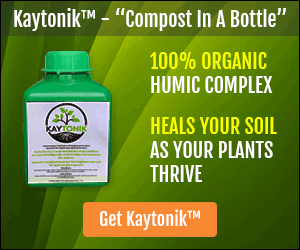Growing plants from seeds can be a rewarding experience or… a very frustrating one. Seeds come equipped with everything they need to grow, although sometimes they need a little help on our side. There are two reasons for this: first, seeds are planted outside their natural environment where conditions are ideal for germinating, and second, because we, as gardeners, don’t want to wait for those conditions to arrive naturally. Sometimes this can be longer than a season.
Seed Soaking For Breaking Dormancy
Seeds will germinate when they break their dormancy. For many seeds, this will happen when you plant them at the right time – soil and daytime temperature are ideal. Some seeds take a long time to germinate, and seed soaking can help to speed up the process.
By soaking seeds in lukewarm water for 8-12 hours (some can go up to 24 hours, but never more than that), you help the seed to break dormancy and germinate faster. Place the seeds in a shallow bowl near a window. Kevin from Epic Gardening explains why this works when you soak the seeds "you’re mimicking the rainy weather and light conditions that seeds in nature would be exposed to."

Soaking Seeds in Humic Acids
A study on corn done by the Faculty of Agricultural and Environmental Sciences at the McGill University on seed soaking with humic acids (particularly with Humic Land™) found that the optimal soaking time is 10 hours.
The research showed that “seed germination percentage (98%) was significantly higher with the treatment of seed soaking for 10 h.” According to the same research, when soaking seeds in a solution of humic acids, the radicle length of seeds was significantly bigger. As radicle becomes root, this result is consistent with the previous finding that applying Humic Land™ by seed soaking increased plant root biomass.
Side note: This research was done using Humic Land™, but the same results can be achieved in a home environment if you use Kaytonik™.
Seeds soaked have to be immediately planted.
Avoid soaking seed if rain is in the weather forecast. Which seeds to soak Although theoretically, all seeds can benefit from soaking, not all seeds do well, especially small, papery seeds like tomatoes or carrots. The best seeds to soak are big, wrinkle seeds, for example, beans and peas. Seed soaking is very common for trees and shrubs planting. This method is good for seeds that are easy to handle.
Here is a shortlist of seeds that you soak before direct sowing (in some cases, you can indoor plant them as well): Peas, beans, corn, sunflower, pumpkins, squash, beets, and eggplant.
Finally, seeds will germinate if you don’t soak them; they just need more time. Be sure to inoculate your soil with our soil amendment to ensure that active biology is there to help your plants to thrive!















